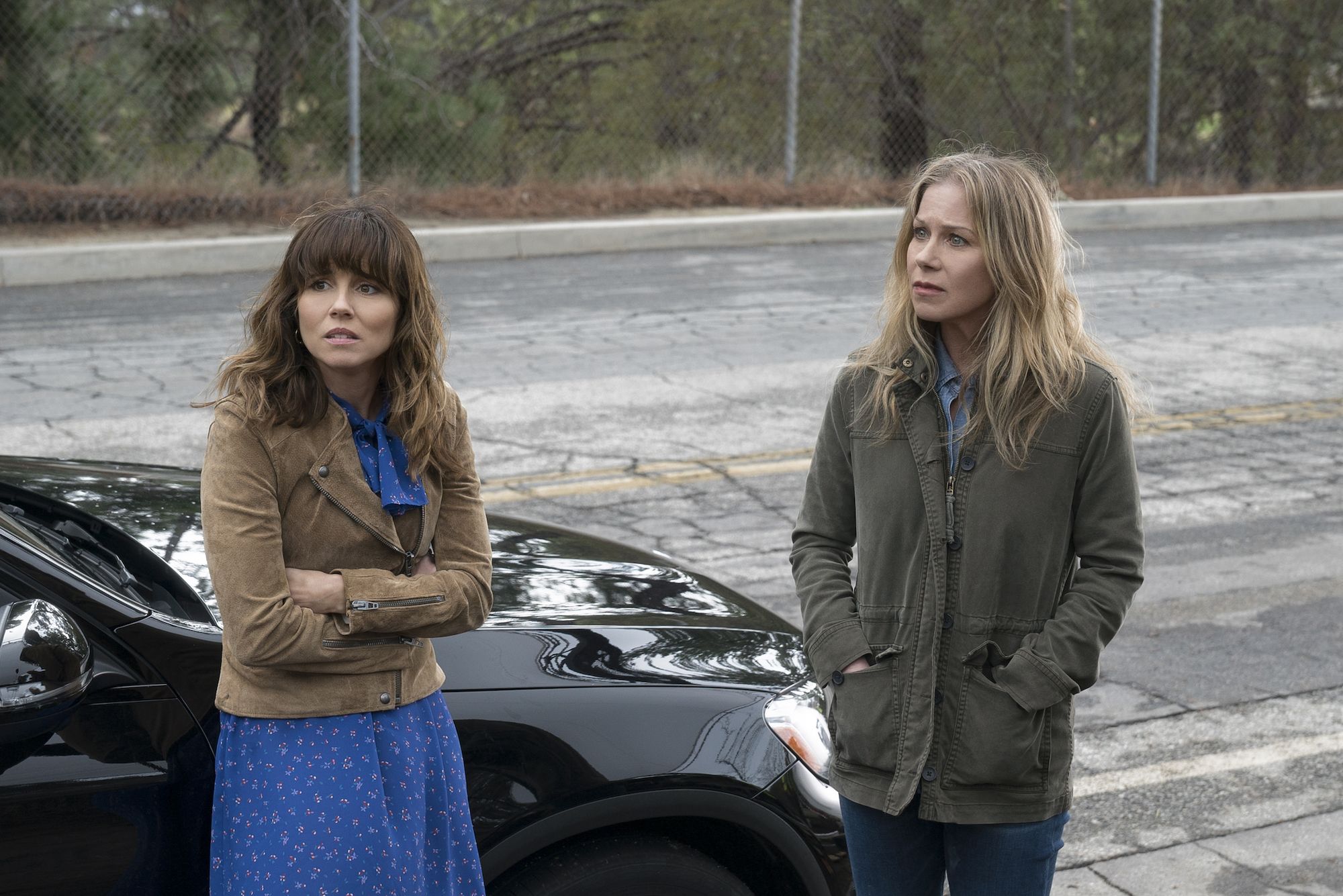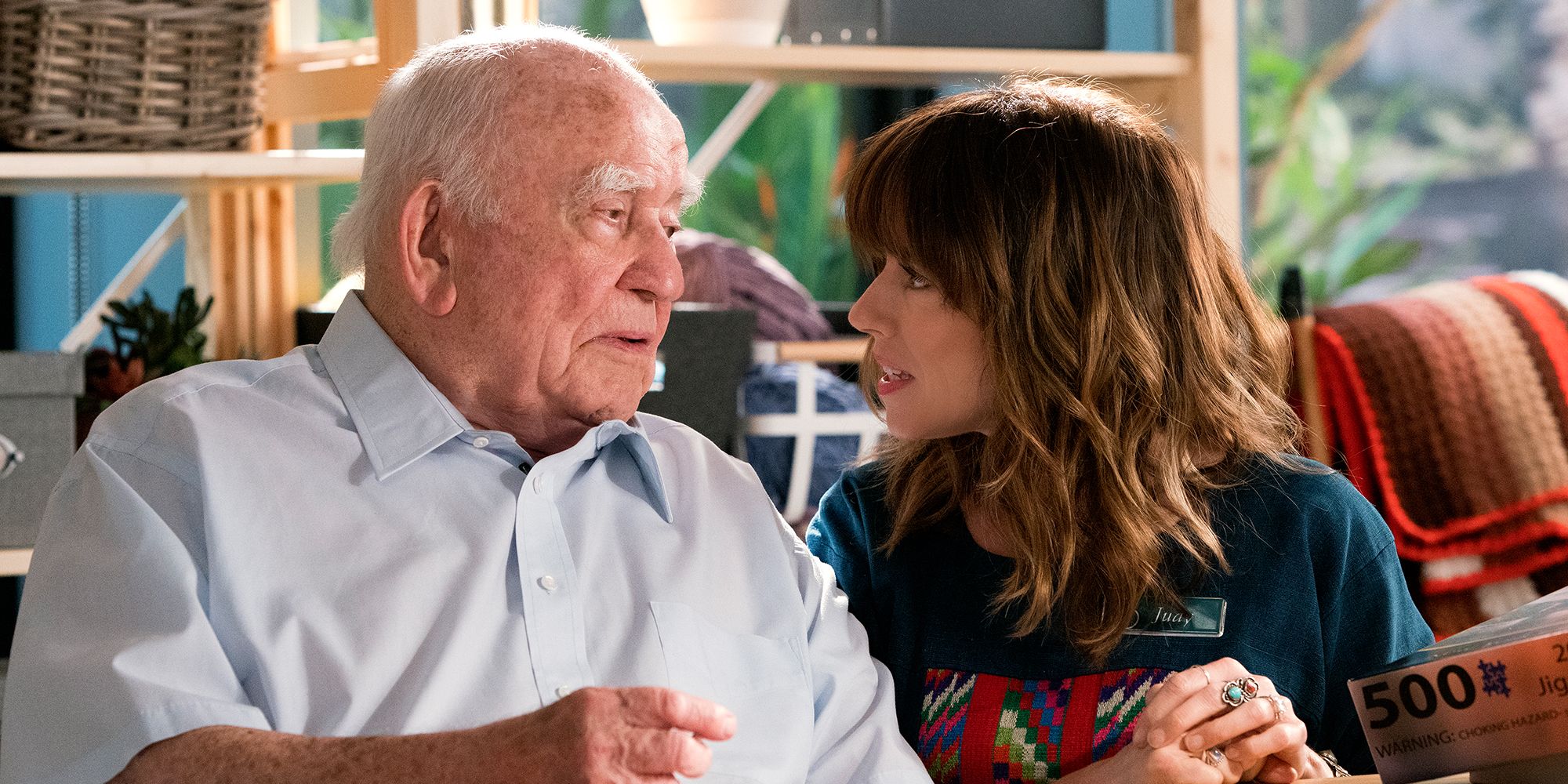
Dead to Me is something of bait-and-switch, though a clever and enjoyable one. The trailer for the new Netflix series suggests that it’s a black comedy, a Desperate Housewives meets Six Feet Under with a touch of suburban angst mixed to keep things light. Instead, Dead becomes a sometimes-profound look at the stages of grief — and the extremes we’ll go to avoid them. As much a murder mystery as a darkly comic whodunnit, Dead produces a performance that’s Emmy-worthy, if not the show itself.
Starring Christina Applegate in the role of her career, Dead follow a widow trying to rebuild her life after her husband is killed by a hit-and-run driver. While the show spends 10 twist-full episodes trying to be a madcap mystery about suburban SoCal secrets and lies, it becomes a layered look at friendships forged in misery.
Dead to Me begins with high-end realtor and mother of two Jen (Applegate) slamming the door on yet another neighborly well-wisher bearing a casserole. Three months after her husband’s death, Jen’s primary emotion besides grief is anger. She’s mad at the person who ran her husband over. She’s mad at the cops who haven’t found the driver. And she’s generally mad at the world for handing her such a raw deal.
But Jen’s life begins to improve when she meets Judy (Linda Cardellini), a flighty and free-spirited woman who’s also dealing with her own loss. Their chance meeting at a grief support group isn’t actually by chance — the final shot of episode one portends many surprise endings — unusual for a comedy series. Jen and Judy form a real friendship, commiserating over insomnia-fueled phone calls and late-night Facts of Life reruns. Pretty soon the lonely Jen invites Judy to live in her unoccupied guest house.
Turns out, Jen and Judy make fast friends over common sadness: Jen’s marriage was fraying long before it was cut short by the accident, while Judy can’t leave her on-and-off fiancé Steve (James Marsden). He’s a slick finance type whose good looks and charm mask a dismissive attitude toward the soft-hearted Judy.
And yet it’s the show pacing that undermines these characters. Dead is less interested in Jen and Judy’s connection than it is in the Big Secret that could destroy it. Episodes are peppered with near-misses and convenient coincidences that lead Jen to the brink of discovery, only to veer away from the truth with a rush of near-miss adrenaline. It’s a fine format for, say, Breaking Bad. But it’s too dramatic a pace for a comedy series.
Instead, the show is at its best when Jen and Judy are just hanging out, talking about things that aren’t veiled secrets, like motherhood, re-entering the dating world, and whether they’re a Blair or a Jo. Applegate, returning to series TV for the first time in seven years, brings an astonishing depth to Jen. Her tears and rage are palpable. Though Cardellini is saddled with primarily goofy sidekick duties, her character brings genuine warmth and humanity to Dead. And Ed Asner, who plays as a cranky old charmer at the nursing home where Judy works, is as good here since The Mary Tyler Moore Show. As a murder mystery, Dead to Me isn’t much of a discovery. But as an examination of human frailty, Dead brings its characters springing to life.


